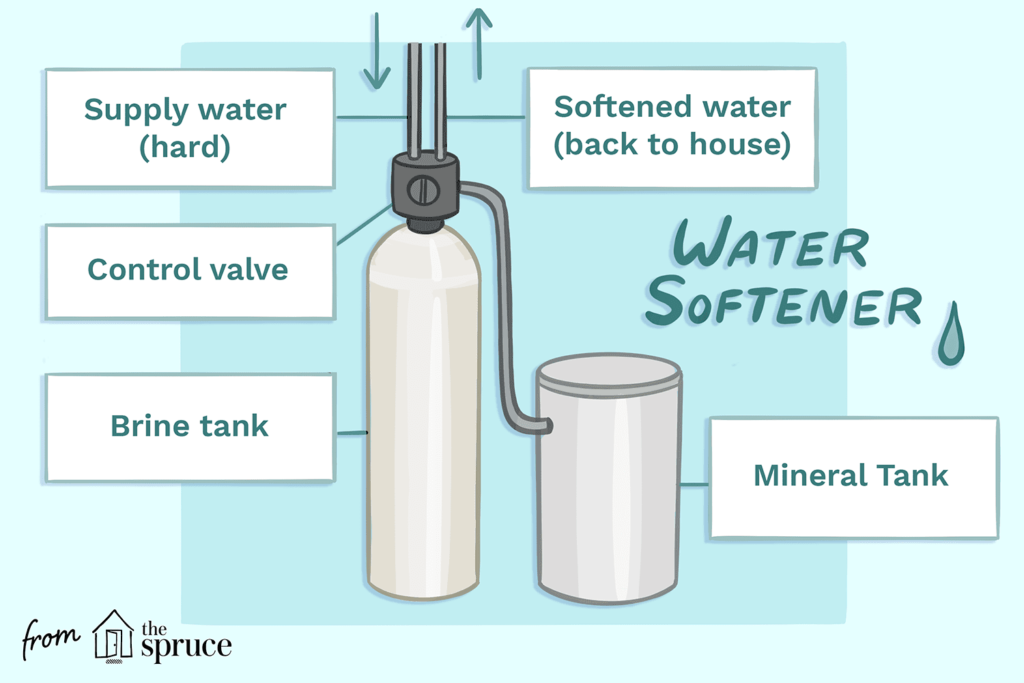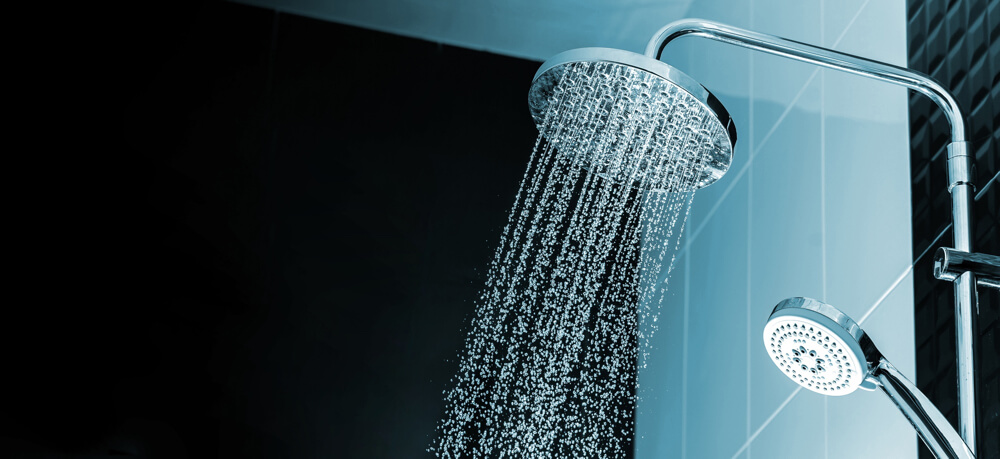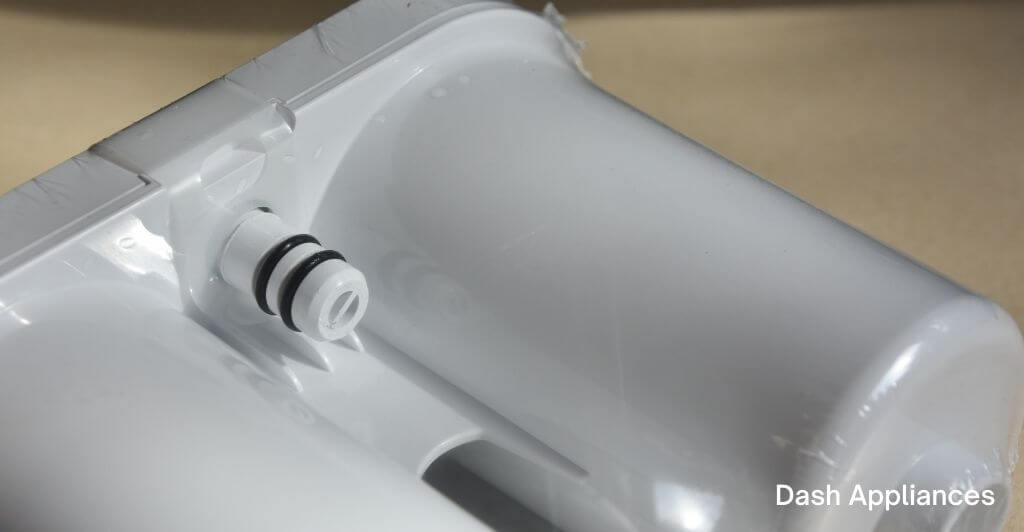No doubt, you have already heard about water softeners. So, the question is, do you need them? Water softeners present many benefits, but you may still want to know whether they suit your needs completely.
In a nutshell, water softeners only need a little maintenance. They last from 15-20 years and effectively reduce electricity bills and eliminate scale throughout the plumbing.
Keep reading and get to know the benefits of water softeners and their advantages!
What is a Water Softener?
In a nutshell, a water softener removes the minerals that cause ion exchange or water to be hard. Water contains high levels of magnesium, and calcium is considered hard water.

Beware that hard water presents several problems throughout the home, including clogged pipes, water spots, soap, and detergent dissolving complications. As it created a scale buildup within the water appliances and pipes, water heater efficiency is reduced.
With water softeners, hard water is treated and reduces or eliminates its negative impacts. They are designed to remove positively charged ions.
You can watch this video to learn how a water softener system works…
Benefits of Water Softeners
If you are not yet convinced with incredible things that water softener can make, check out other benefits below:
1. Softer and Cleaner-Looking Clothes
Some clothes stopped being soft after you washed them. Do not blame the laundry detergent because the hard water is the culprit, as it can dry out the clothing materials. It leaves mineral buildup, which makes the clothes still dirty.
Water softeners help prevent the hard water’s adverse effects on the clothes and make them softer. They also preserve the fresh look and feel. In other words, having water softeners enables you to enjoy softer and cleaner-looking clothes.
Washing clothes with hard water leaves deposits that cause the color to fade over time. Some miners may cause dingy whites or stains. That is why having softeners is an advantage.
Since soft water dissolves detergent more effectively and into the clothes easier, you only need to use less detergent and wash your clothes much easier. Plus, you do not need to use fabric conditioners.
2. Saves Money
A water softener can save you a significant amount of money. You have nothing to worry about mineral buildup in the pipes and appliances if you have soft water. In return, you can save from costly repairs.
Mineral buildup narrows the area of water, which needs a higher pump pressure and increases the necessary energy to keep the water cold or hot. It also wreaks havoc on the water appliance, meaning more frequent replacements and repairs are required.
Once the minerals travel through the pipes, they stick and form a scale buildup. This buildup will clog your pipes later on. If severe hard water compositions are present, buildup will soon occur and cause irreversible plumbing damage. The best way to prevent hard water problems is to have a water softener.
Water softeners prevent adverse hard water impacts on the laundry machines and dishwashers when it comes to appliances.
If you do not use softeners on water, scale buildup can lower the quality and efficiency of your appliances because of the hard water composition. Scale buildup inside the appliances can also result in a shorter lifespan. So water softeners can help you save money in many ways.
3. Removes Unwanted Tastes from Drinking Water
The water you drink can have an “earthy” flavor. Depending on the water source, that earthy taste may have traces of everything like metallics and hard minerals.

While everyone has a different sense of taste, most people prefer water over hard water. That is because soft water has no taste of chloramine, fluoride, minerals, and other natural or chemical additives.
Once you use a water softener, except that the things you should not be drinking are removed. You can turn your tap water into fresh, filtered drinking water at any time.
4. Less Cleaning Time
Do you always spend long hours cleaning? If so, it is evident that you have hard water at home since you always wash dishes and clothes constantly.
With hard water, you may spend several hours per week scrubbing soap scum off the faucets, sinks, walls of showers, and chalky lime. However, if you use a water softener, you can prevent the negative impacts of hard water.
It also ensures that soft water completely dissolves and penetrates soap. You will see less insoluble soap curd or scum in the bathroom. So, you will spend less time cleaning and keeping your living space healthy.
5. Cleaner Dishes
Clean dishes mean you and your loved ones are free from food contamination and health risks. However, if you use hard water at home, you will find it difficult to clean your dishes.
Regardless of how often you clean the dishes, the detergents or soaps you use are left on the silverware and glasses. Once they become dry, you will see a cloudy appearance.
A water softener can solve the root cause of the problem. It removes the minerals before a buildup occurs on the dishes.
Since soft water fuses with detergents and soaps more thoroughly, you can expect more cleaning action and more lather in the dishwashing routine.
6. Less Detergent Use
How much do you spend on your cleaning materials like detergents? If you allow a large portion of your budget for cleaning or laundry materials, it’s time to use a water softener and use fewer detergents.
One of the reasons why more and more homeowners switch to water softeners is that they want to make their laundry machines more efficient.
If you keep on using hard water, you will only get stiffy, dirty clothes. Not only that, you may end up using more detergent and even fabric softener to achieve clean and soft clothes.
With water softeners, you do not need to spend too much on detergents and other cleaning materials. Soft water lathers with detergents more effectively, helping you save up to 50% of your detergents.
7. Fewer Stains and Water Use
Hard water can cause mineral buildup that produces stains on different household items, such as appliances, sinks, cups, cutlery, and clothes. Those stains are very unsightly, so they require frequent cleaning.
However, if you take advantage of a water softener, no need for you to worry about sediment buildup on any household items.
Besides fewer stains, using water softeners also helps use less water. When cleaning, you need a lot of water due to the scale, and the lather fails to form readily. However, if you switch to using water softeners, rest assured that you will need less water.
Is Water Softener Good for Hair and Skin?
If you want to achieve healthier and softer skin, ensure to use a water softener. It also helps make your hair shiny and strong.
If you always use hard water when washing your skin, you will notice dry after a shower. You also need to use a significant amount of moisturizer or lotion to keep it soft and reduce irritation.

The type of soap, lotion, moisturizer, and other skincare products cannot be blamed for having dry and unhealthy skin. If you wish to keep your skin glowing and healthy, use a water softener as it removed the minerals that can irritate or dry your skin.
Water softeners are not only beneficial to the skin, but they also keep your hair shiny and strong. In most cases, you spend a lot of money and time using different hair products like shampoo and conditioner to keep your hair healthy.
However, if you keep washing your hair with hard water, using those products has no point. Instead, install a water softener and keep your hair look and feel healthy.
Conclusion
A water softener can help you in many ways, from saving money to keeping your skin and hair healthy. So, there is no way for you not to use it instead of enduring the negative impacts of hard water.
FAQ
What are the pros and cons of a water softener?
The pros of a water softener are: Longer appliance lifespan, Reduced energy bills, No stains, Healthy looking skin and hair, Reduced detergent and soap use, Easier cleaning, Soft and bright fabric, and cons are: Operating costs and Hard to recycle.
What are the advantages of having soft water?
Water softeners come in two forms: salt-based and salt-free. A salt-based water softener provides a more slick feeling in the shower with more bubbles. The clothes also come in brighter colors while reducing the scale buildup. A salt-free water softener can soften water without the need to add sodium to the water. So, it can provide brighter clothes and reduced scale buildup in a healthier and more environmentally friendly method.
Which is the most beneficial reason for installing a water softener?
The most beneficial reason to use a water softener is that it saves money. You can save a significant amount of money since you do not need to buy many detergents, soaps, and other cleaning materials and worry about frequent appliance repair due to mineral build-up. Plus, you do not need to use a lot of water when cleaning.

It’s interesting to know that you will save money by installing a water softener in your home since you’ll get rid of contaminants and mineral build-up. You don’t have to buy detergents, soaps, and other cleaning materials. Since we have hard water in the neighborhood, I’ll discuss with my husband and having a water softener installed at home soon.